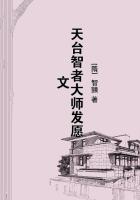Says Turner of the Tannese, "adultery and some other crimes are kept in check by the fear of club-law."(26*) Fitzroy tells us that the Patagonian, "if he does not injure or offend his neighbour, is not interfered with by others:"(27*) personal vengeance being the penalty for injury. We read of the Uaupes that "they have very little law of any kind; but what they have is of strict retaliation, an eye for an eye and a tooth for a tooth."(28*) And that the lex talionis tends to establish a distinction between what each member of the community may safely do and what he may not safely do, and consequently to give sanctions to actions within a certain range but not beyond that range, is obvious. Though, says Schoolcraft of the Chippewayans, they "have no regular government, as every man is lord in his own family, they are influenced more or less by certain principles which conduce to their general benefit:"(29*) one of the principles named being recognition of private property.
How mutual limitation of activities originates the ideas and sentiments implied by the phrase "natural rights," we are shown most distinctly by the few peaceful tribes which have either nominal governments or none at all. Beyond those facts which illustrate scrupulous regard for one another's claims among the Todas, Santals, Lepchas, Bodo, Chakmas, Jakuns, Arafuras, etc., we have the fact that the utterly uncivilized Wood-Veddahs, without any social organization at all, "think it perfectly inconceivable that any person should ever take that which does not belong to him, or strike his fellow, or say anything that is untrue."(30*) Thus it becomes clear, alike from analysis of causes and observation of facts, that while the positive element in the right to carry on life-sustaining activities, originates from the laws of life, that negative element which gives ethical character to it, originates from the conditions produced by social aggregation.
So alien to the truth, indeed, is the alleged creation of rights by government, that, contrariwise, rights having been established more or less clearly before government arises, become obscured as government develops along with that militant activity which, both by the taking of slaves and the establishment of ranks, produces status; and the recognition of rights begins again to get definiteness only as fast as militancy ceases to be chronic and governmental power declines.
When we turn from the life of the individual to the life of the society, the same lesson is taught us.
Though mere love of companionship prompts primitive men to live in groups, yet the chief prompter is experience of the advantages to be derived from co-operation. On what condition only can co-operation arise? Evidently on condition that those who join their efforts severally gain by doing so. If, as in the simplest cases, they unite to achieve something which each by himself cannot achieve, or can achieve less readily, it must be on the tacit understanding, either that they shall share the benefit (as when game is caught by a party of them) or that if one reaps all the benefit now (as in building a hut or clearing a plot) the others shall severally reap equivalent benefits in their turns. When, instead of efforts joined in doing the same thing, different things are effected by them -- when division of labour arises, with accompanying barter of products, the arrangement implies that each, in return for something which he has in superfluous quantity, gets an approximate equivalent of something which he wants. If he hands over the one and does not get the other, future proposals to exchange will meet with no response. There will be a reversion to that rudest condition in which each makes everything for himself. Hence the possibility of co-operation depends on fulfilment of contract, tacit or overt.
Now this which we see must hold of the very first step towards that industrial organization by which the life of a society is maintained, must hold more or less fully throughout its development. Though the militant type of organization, with its system of status produced by chronic war, greatly obscures these relations of contract, yet they remain partially in force.
They still hold between freemen, and between the heads of those small groups which form the units of early societies; and, in a measure, they still hold within these small groups themselves;since survival of them as groups, implies such recognition of the claims of their members, even when slaves, that in return for their labours they get sufficiencies of food, clothing, and protection. And when, with diminution of warfare and growth of trade, voluntary co-operation more and more replaces compulsory co-operation, and the carrying on of social life by exchange under agreement, partially suspended for a time, gradually re-establishes itself; its re-establishment makes possible that vast elaborate industrial organization by which a great nation is sustained.
For in proportion as contracts are unhindered and the performance of them certain, the growth is great and the social life active. It is not now by one or other of two individuals who contract, that the evil effects of breach of contract are experienced. In an advanced society, they are experienced by entire classes of producers and distributors, which have arisen through division of labour; and, eventually, they are experienced by everybody. Ask on what condition it is that Birmingham devotes itself to manufacturing hardware, or part of Staffordshire to making pottery, or Lancashire to weaving cotton. Ask how the rural people who here grow wheat and there pasture cattle, find it possible to occupy themselves in their special businesses.














